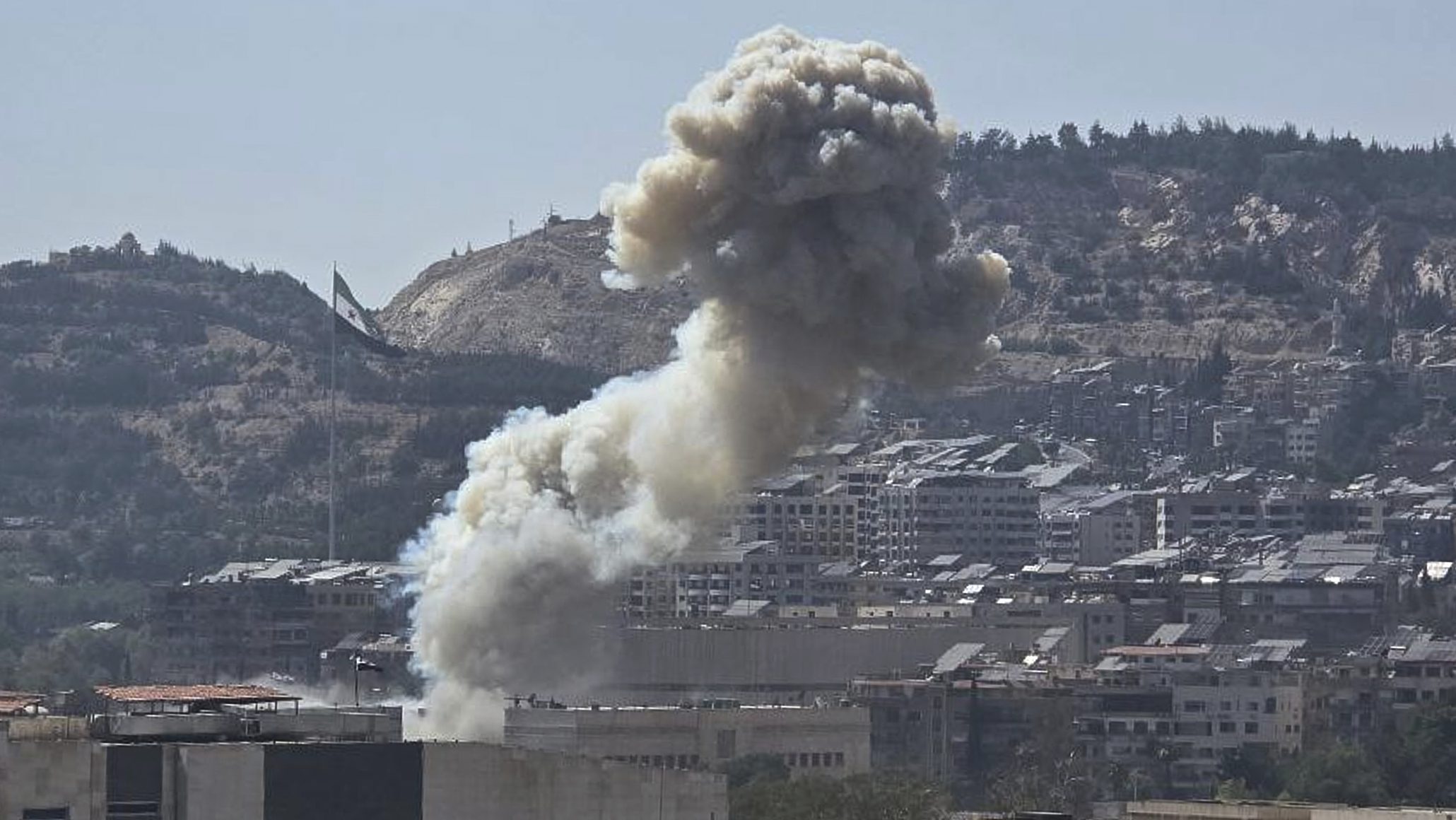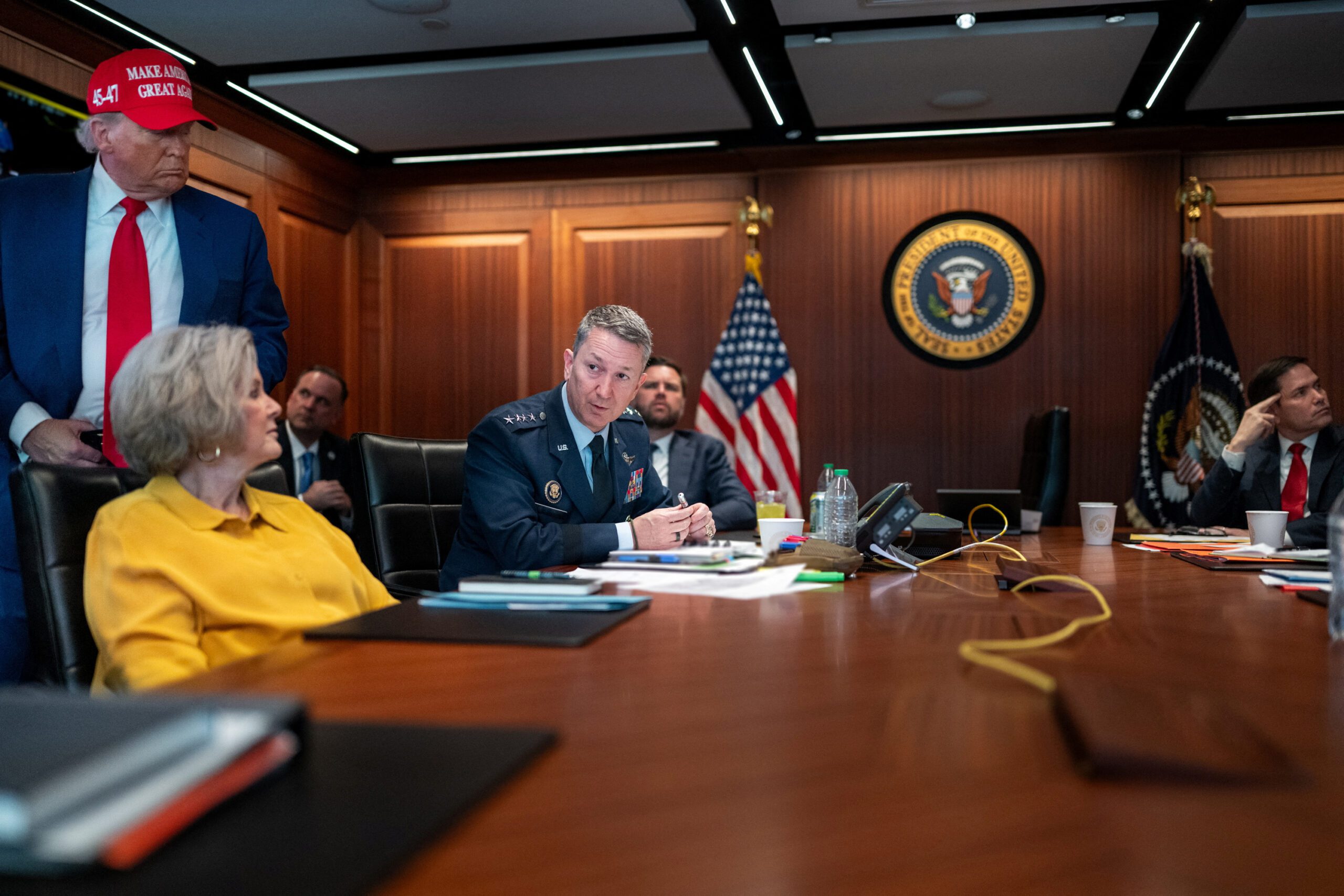Israel’s Attack on Qatar Forces a Gulf Strategic Realignment
The GCC states now consider an attack on one to be an attack on all, and Saudi Arabia may be covered by a Pakistani rather than U.S. military umbrella.

Israel’s September 9 bombing of a civilian house in a residential neighborhood hosting Hamas negotiators in Doha failed to kill its primary targets, although several others, including a Qatari security officer, perished in the attack. But it has unwittingly succeeded in redrawing, at least to some extent, the security architecture among Gulf countries, with potentially wide-ranging implications, especially if this is the beginning of a trend. Anyone in Israel or the United States who expected the history of tension between Qatar and other Gulf countries, such as Saudi Arabia and the United Arab Emirates, over local politics and political activists or ideological issues involving Islamism and the Muslim Brotherhood to prevent the states from coming together misread Gulf strategic thinking entirely. Rather than taking any quiet smug satisfaction over the attack against Qatar, the Gulf Cooperation Council countries recoiled in horror, understanding it illustrated how easily any of them can be suddenly attacked by more powerful neighbors, including Israel, Turkey, and especially Iran.
Israel was the culprit in this case. And Gulf Arab relations with the United States – which once again, as with the 2019 attack on Saudi Aramco facilities and the 2022 deadly Houthi drone attacks in Abu Dhabi, failed to prevent or specifically retaliate against the aggression – were badly damaged. However, the Iranian threat still quietly looms largest in Gulf Arab anxieties. This is not only because of Gulf geography and long-standing threat manipulation by Iran but also because Iran is still contemplating its medium-term reaction to the Israeli and U.S. 12-day war targeting Iranian nuclear facilities in June and the ongoing countdown of the 30-day process for the reimposition of potentially economically devastating international “snapback” sanctions at the United Nations on August 28.
One of the most obvious potential Iranian responses would be a return to the tactics of “maximum resistance” of 2019, in response to the “maximum pressure” sanctions of President Donald J. Trump’s first administration, which began in 2018 with the U.S. withdrawal from the Joint Comprehensive Plan of Action nuclear agreement. These actions largely involved “gray zone” or deniable actions of sabotage, piracy, and various other unconventional military actions largely aimed at Gulf Arab interests aligned with the United States. It is not that the Gulf countries are particularly at fault for the Israel-Iran 12-day war, in which they were not involved, strenuously labored to prevent, and vocally opposed, nor that they represent any real threat to Iran, especially since Saudi Arabia and the UAE restored relations with Iran and began productive bilateral conversations years ago.
It is rather that these Gulf Arab countries lack comprehensive missile and drone defense systems that can deny well-armed assailants the ability to hit strategic targets in their countries. They also, for the most part, lack both strategic depth and the ability to meaningfully retaliate against Iranian attacks and avoid being drawn into a tit-for-tat replay of the 12-day war with Israel. This leaves them feeling exceptionally exposed as potential targets of Iranian retaliation against U.S. pressure and sanctions, including the international snapback, or particularly in the case of resumed Israeli strikes on Iran, which seem highly plausible in the intermediate or longer term. And as it has been established they can’t rely on U.S. protection, in cases that don’t threaten regime stability, the Gulf countries determined that they needed to act quickly to bolster their defenses not only against the new Israeli threat but the old Iranian one despite all efforts to reduce tensions and remove the Gulf countries from any direct involvement in tensions between Iran and both the United States and Israel.
Despite everything, they feel like sitting ducks, and they may also seem exactly that from an Iranian perspective: strategically valuable targets that could be hit with enormous effect and, if history is any judge, extremely limited consequences for the attacker. This helps to explain why Gulf countries felt that the attack against Qatar threatened all of them equally, political and ideological differences of the past notwithstanding. Even Qatar’s most vociferous Gulf Arab critic, the UAE, sprang into action, with President Mohammed bin Zayed al-Nahyan and a phalanx of senior Emirati officials arriving for a solidarity visit within 24 hours of the attack.
A September 15 emergency meeting of the 57-member Organization of Islamic Cooperation and 22-member Arab League in Doha declared similarly that an attack on one would be regarded as an attack on all and pledged utmost solidarity for Qatar. The GCC as well has updated its existing security arrangement, echoing NATO’s Article 5 provision, to hold that an attack on one would be regarded as an attack on all. This is intended to provide not only greater military options for potential retaliation against aggression but also greater strategic depth, particularly given the geographic and demographic size of Saudi Arabia.
The extent to which this is put into practice remains to be determined, and it’s unlikely that these watershed events in 2019, 2022, and 2025 will prove sufficient inflection points to completely overcome the existing hesitation on the part of Gulf countries to create the kind of joint early warning and integrated missile defense responses that the United States has been urging for decades. This would require Gulf countries to create transnational or multinational command structures that would supersede national ones in moments of crisis, and that presumes a level of trust that has never fully developed since the independence of most of the Gulf Arab states from Britain mere decades ago. But these attacks could prove the inflection points that change attitudes to make such a recalculation possible in the coming years and decades.
The other major strategic development which was, to some extent at least, a consequence of Israel’s attack against Qatar is the new mutual defense pact between oil-rich Saudi Arabia and nuclear-armed Pakistan. The agreement has been in the works for years and was not a sudden and direct response to Israel’s brazen attack against Doha. However, the Israeli airstrike may well have influenced those countries to bring forward the signing date, or at least the public announcement, of the new agreement to make the point that it is precisely designed to throw a Pakistani nuclear umbrella over Saudi Arabia that would – at least in theory – protect it against such attacks by hegemonic neighbors, including Israel and Iran.
The Saudi-Pakistani deal is bilateral and does not particularly strengthen the hands of the other GCC countries. However, it does challenge the United States to finally begin to recalibrate its defense relationship with Gulf Arab countries that host its major military footprint in the Gulf region and the broader Middle East. The assumption always was that hosting U.S. forces would provide at least some level of protection, and, in terms of the 1980 Carter Doctrine and its deterrent effect against invasion, it probably still does. The problem is that the Carter Doctrine is outdated and overly specific, designed to respond to 20th century anxieties about armored divisions launching full-scale invasions of Gulf countries, as indeed happened with the Iraqi invasion of Kuwait in 1990. In 1991, the Carter Doctrine was duly implemented as the United States led a large coalition force that drove Iraqi forces out of Kuwait. But such scenarios no longer define Gulf Arab security anxieties, which now focus on gray zone warfare, cyber and electronic attacks, sabotage and terrorism, and suddenly air, missile, and drone attacks. Gulf countries are asking themselves what the benefit is of hosting or facilitating the formidable U.S. military footprint in this strategically vital region if the United States does nothing to either prevent or respond to attacks on their territory.
For well over a decade, the UAE, in particular, but Saudi Arabia and even Israel as well have been practicing a quiet form of strategic diversification to give themselves greater options beyond a dependence on a United States perceived as no longer reliable. One of the earliest manifestations of this was the Abraham Accords, with the UAE and Bahrain normalizing ties with Israel. But that was only the beginning of a process, and its future is now under significant doubt given Israel’s threats to annex large chunks, if not all, of the occupied Palestinian West Bank. Both the UAE and Saudi Arabia have declared additional annexation a “red line,” without defining exactly how they would respond. However, all these countries have also been developing stronger ties not only with each other but also with global powers, such as Russia and China, and, in the case of the UAE and Saudi Arabia, restored relations and independent bilateral dialogues with Iran. As noted, however, Iran remains one of the primary potential threats given that it may choose to once again begin striking Gulf Arab targets, with or without deniability, in response to the 12-day war and snapback sanctions.
With regard to strategic diversification aimed at Pakistan, an intensification of a long-standing Saudi effort, the extent to which Riyadh is really now covered by a Pakistani nuclear umbrella – despite Pakistan’s insistence that an attack on either would be considered an attack on both – would have to be tested in practice. India probably need not worry about Saudi Arabia joining Pakistan meaningfully in any new Indian-Pakistani war. And the extent to which Israel is contemplating any kind of military action against Saudi Arabia appears very low, meaning that any Pakistani nuclear umbrella over Saudi Arabia under current circumstances does not change Israeli strategic thinking much, if at all, unless Israeli strategic doctrine cannot accept even the implication of another power in the region with the ability to claim access to nuclear deterrence. But Iran may have to carefully consider how the Gulf countries are marshaling new options and opportunities for both defense and retaliation.
The United States will have to consider itself on notice that the Gulf countries are now formally moving on and that, while none of them are interested in breaking ties with Washington, the idea that they can be reliant on the United States for defense is now, for the time being, practically discarded. This is certainly the case if Israeli action is involved. It would not be difficult for Washington to develop new protocols, update the Carter Doctrine, or issue any number of other public assurances to reduce that Gulf nervousness, especially if it is backed up in practice. But until then, the Gulf countries are looking to each other, and elsewhere, for practical defense.
The views represented herein are the author's or speaker's own and do not necessarily reflect the views of AGSI, its staff, or its board of directors.






























